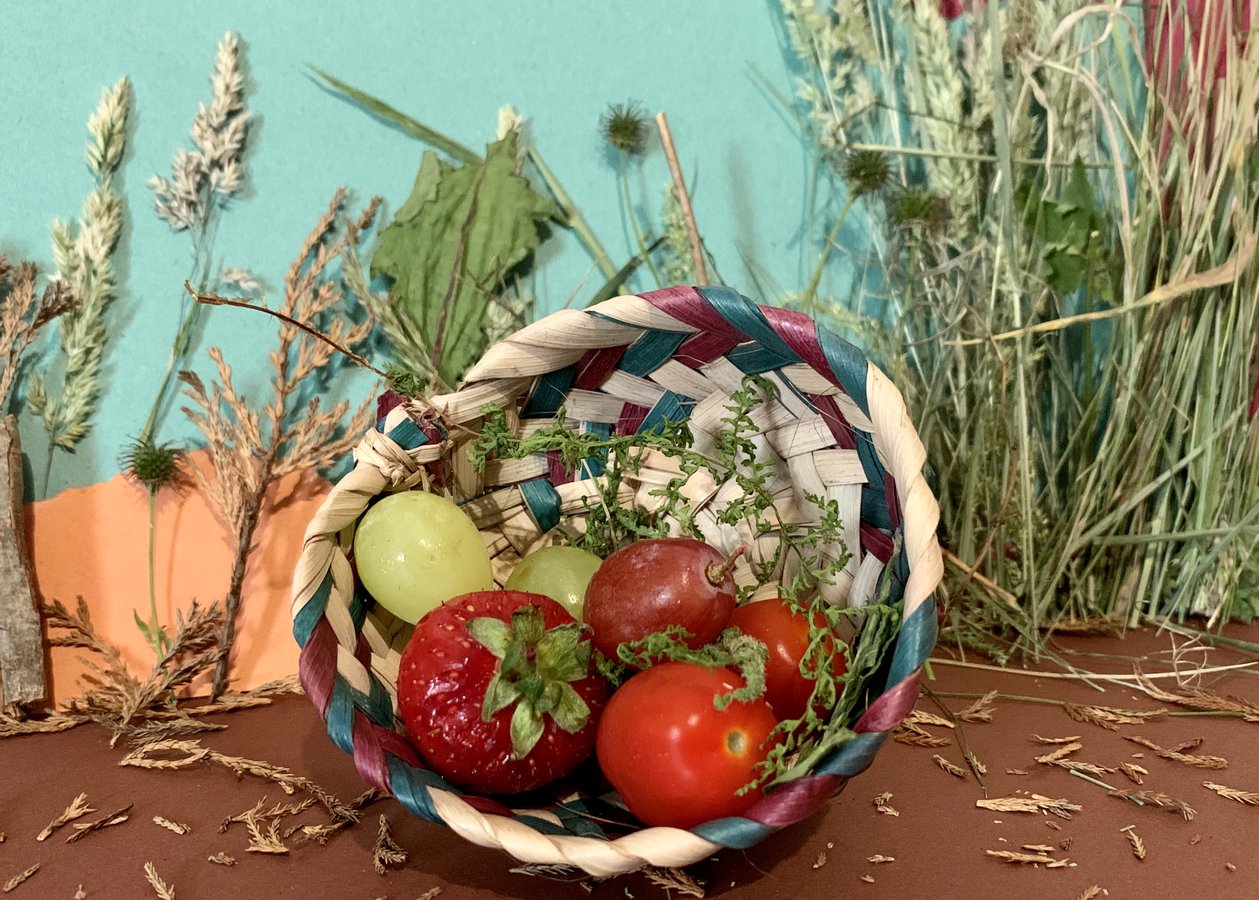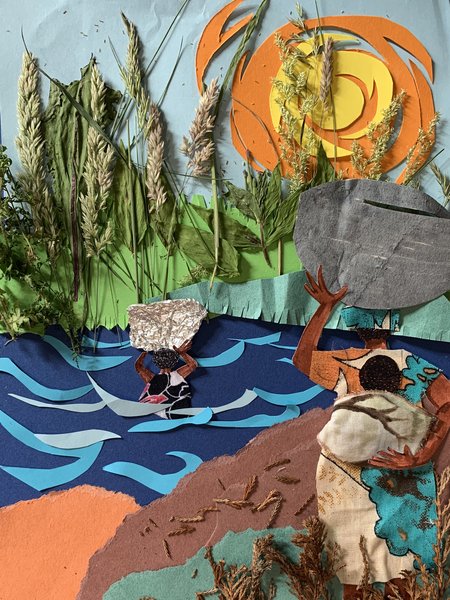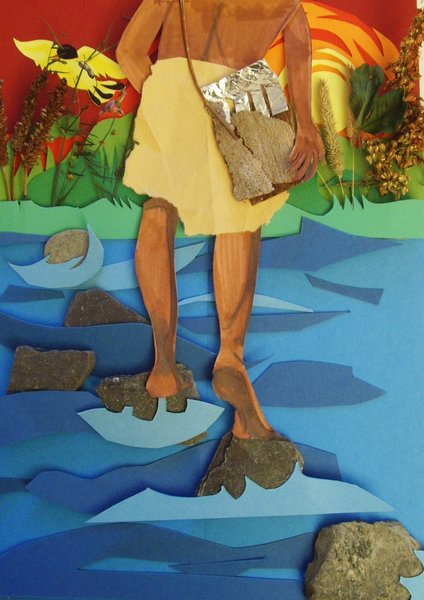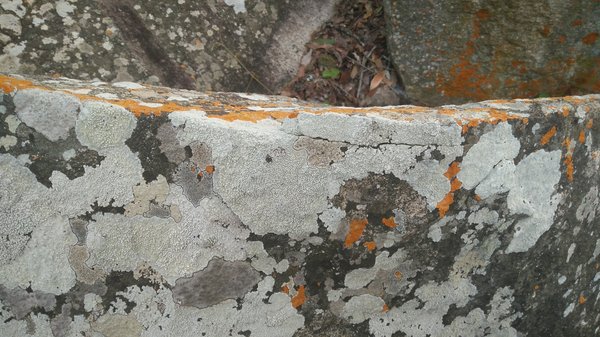
'Nhorwa’ art work by Tarneem Al Mousawi.
This blog is part two in a three-part series on 'expressions of travel' and is divided into three groupings – sezvazviri (literal); midziyo (items/objects); and zvirevo (proverbial).
In this second instalment of mazwi e nzendo (expressions to do with travel) triptych of blogs, I’m exploring midziyo (items/objects).

MIDZIYO (items/objects)
mukwende – a large collection of belongings taken on a journey
katundu – a small lump of personal belongings taken on a journey; can also be derogatory
nhava – a small travelling bag woven from plant fibres, used by goat/cattle herders, medicine gatherers, or hunters
guchu – a calabash used to carry water on a journey
mbuva – food that is carried on the journey
tsvimbo – walking stick; also, symbolic item of seniority/maturity bestowed by the family/community/society from which you come
mucheka – a piece of cloth that can be worn as a wrap or headdress; used to carry belongings; or a clean surface to sit on when resting or eating
nhorwa – basket with items you have made or gathered that you present as gift to your host, on arrival
What are your own language resources? What item/objects describe or influence your own sense of journey?



